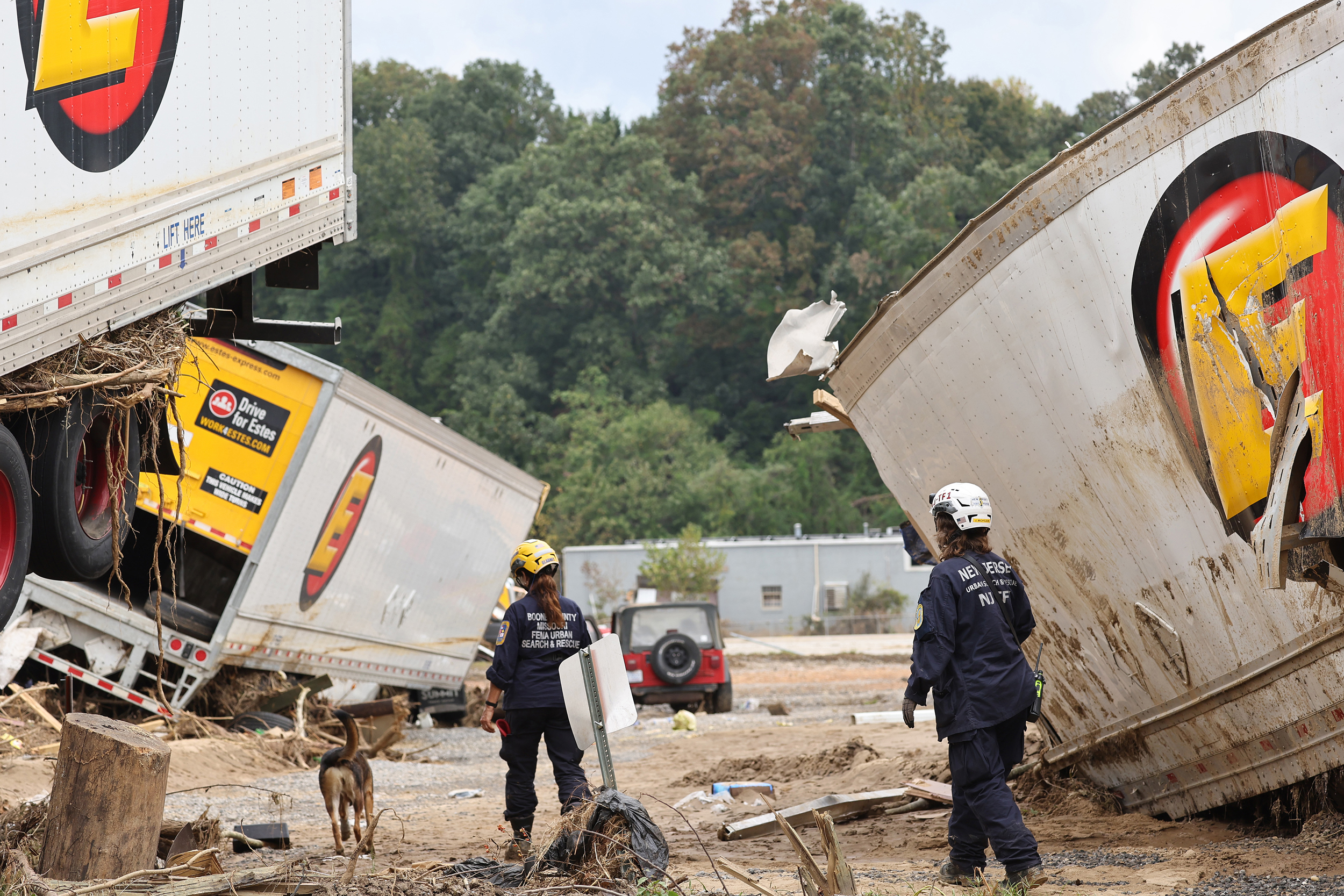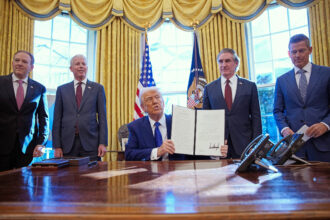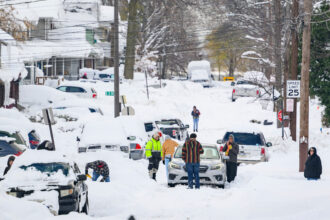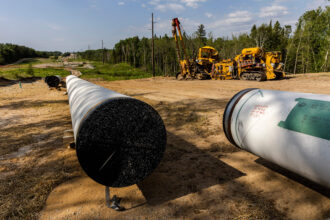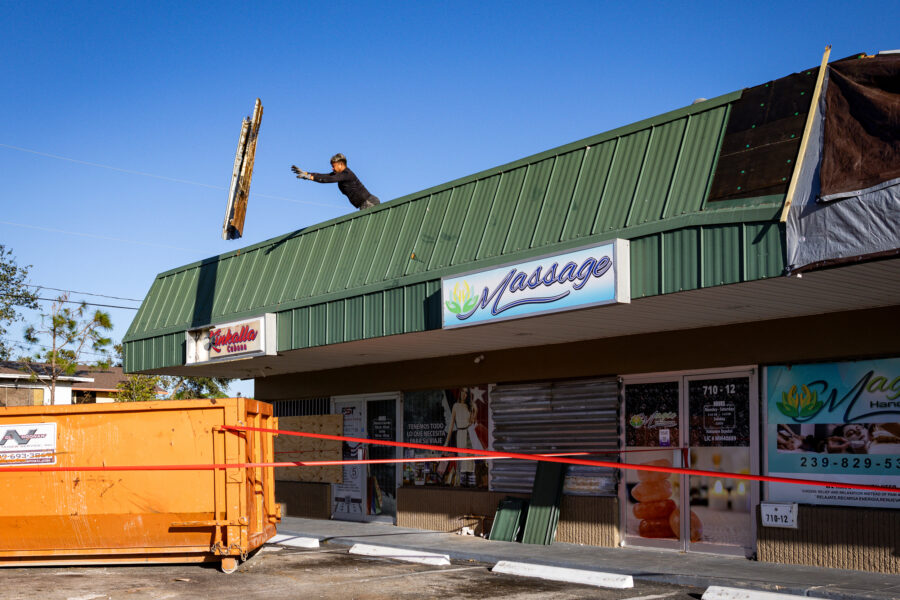With the Atlantic hurricane season only weeks away, the Federal Emergency Management Agency is facing an unprecedented level of turmoil and uncertainty. President Donald Trump has suggested he might eliminate the agency. Its staff has been cut and programs canceled, while its disaster relief fund faces a likely $8 billion deficit.
On Wednesday the agency’s acting administrator faced a barrage of questioning from Democrats in Congress, and some more friendly nudges from Republicans, over whether his agency is prepared to protect Americans from a range of disasters that are expected to hit the nation.
Cameron Hamilton, the senior official performing the duties of the FEMA administrator—Trump has yet to nominate anyone to head the agency—told the House Committee on Appropriations’ Homeland Security subcommittee that FEMA was established to support in “truly catastrophic disasters. Yet at times,” Hamilton added, “we have strayed far from that core mission and evolved into an overextended federal bureaucracy attempting to manage every type of emergency, no matter how minor.”
Pressed on whether there are plans to eliminate FEMA, Hamilton said he thought doing so was not “in the best interest of the American people,” but added that ultimately it was not his decision. That would be up to the president, he said, in conversation with “this governing body.”
While many Republicans welcomed the administration’s stated goal of making the agency more focused and efficient, Democrats called it a dangerous shift that belies what will really happen.
“It effectively tells small towns, rural communities, tribal nations and underfunded municipalities: ‘You’re on your own,’” said Rep. Lauren Underwood (D-Illinois). “There is no way that the small towns that I represent are equipped to handle leading coordination and response with multiple federal agencies in the wake of a major disaster.”
Through a series of executive orders and memos, the Trump administration has made clear that it intends to limit the scope of FEMA’s activities while asking states, tribes and local governments to shoulder much more of the burden—and cost—of disaster management.
In helping to protect the nation from disasters, FEMA focuses not only on assisting with recovery and response but also on trying to make communities less vulnerable, by improving flood protection, for example. The Trump administration has been looking to scale back on both fronts.
In April, Hamilton sent a memo outlining steps intended to make it harder for states to qualify for disaster assistance. That same month, the administration denied a request for assistance by Arkansas Gov. Sarah Huckabee Sanders, a Republican, after tornadoes caused damage across several counties there.
“It effectively tells small towns, rural communities, tribal nations and underfunded municipalities: ‘You’re on your own.’”
— Rep. Lauren Underwood (D-Illinois)
Some Republicans supported the agency’s effort to limit the assistance it provides.
“This is a fight between those who want to be taken care of and those who want to take care of themselves,” said Rep. John Rutherford, a Republican from Florida, a top recipient of FEMA help.
Much of the hearing focused on the cancellation of a popular program, signed into law by Trump in 2020, that sent grant money to communities to improve resilience to disasters. The Building Resilient Infrastructure and Communities (BRIC) program was widely thought to help the federal government save money—for example, by protecting homes from flooding, reducing the need for repairs and relief after disasters strike.
In April, FEMA said it was ending the program and would not pay out already approved grants, calling BRIC “wasteful” and “politicized.”
Rep. Veronica Escobar (D-Texas) called the cancellation “illegal,” adding, “it’s also devastating for the communities that applied for this funding and were allocated it for critical projects.”
Hamilton replied that his agency had found the program to be inefficient and had identified large balances of unspent funds in some projects. But he also said the agency planned to continue some projects that had already been funded and “many” of the projects for which funding had already been obligated.
Shana Udvardy, a senior climate resilience policy analyst at the Union of Concerned Scientists, said Hamilton failed to deliver detailed answers to questions from lawmakers.
“Given the Trump administration’s actions to date,” she said in an emailed statement, “his leadership of the agency seems less focused on empowering states and more intent on abandoning them as extreme weather and climate disasters mount.”
It was the hearing’s penultimate speaker, the committee’s ranking member Rep. Rosa DeLauro (D-Conn.), who pressed hardest for those detailed answers. She probed whether Hamilton planned to request any supplemental funding to cover the projected $8 billion deficit in the emergency fund, to which he said he had no plan to do so.
When DeLauro asked how, then, FEMA was prepared for hurricane and wildfire seasons, Hamilton said “there are always challenges that we have to work through,” adding that he had an excellent work force, that they were focusing on being operationally capable and “fiscally practical.”
It was DeLauro who asked Hamilton whether there were any plans to eliminate FEMA, given previous comments by Trump and Homeland Security Secretary Kristi Noem indicating they’d like to do just that.
After he responded that the final decision would be up to Trump and Congress, DeLauro began to list the billions of dollars that had gone to states across the country, home to each of the lawmakers in the room, calling Trump’s and Noem’s suggestions of eliminating FEMA “cavalier.”
“That final recommendation I believe resides here,” DeLauro said, pounding the table. “This is the law of the land. This is the power of the purse. This is what we do, and what is being done is unlawful and illegal.”
About This Story
Perhaps you noticed: This story, like all the news we publish, is free to read. That’s because Inside Climate News is a 501c3 nonprofit organization. We do not charge a subscription fee, lock our news behind a paywall, or clutter our website with ads. We make our news on climate and the environment freely available to you and anyone who wants it.
That’s not all. We also share our news for free with scores of other media organizations around the country. Many of them can’t afford to do environmental journalism of their own. We’ve built bureaus from coast to coast to report local stories, collaborate with local newsrooms and co-publish articles so that this vital work is shared as widely as possible.
Two of us launched ICN in 2007. Six years later we earned a Pulitzer Prize for National Reporting, and now we run the oldest and largest dedicated climate newsroom in the nation. We tell the story in all its complexity. We hold polluters accountable. We expose environmental injustice. We debunk misinformation. We scrutinize solutions and inspire action.
Donations from readers like you fund every aspect of what we do. If you don’t already, will you support our ongoing work, our reporting on the biggest crisis facing our planet, and help us reach even more readers in more places?
Please take a moment to make a tax-deductible donation. Every one of them makes a difference.
Thank you,


